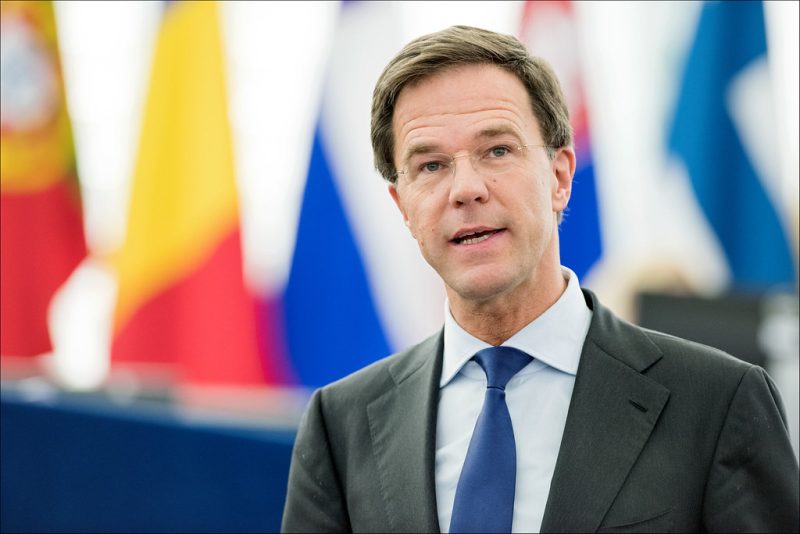On July 7th, Dutch prime minister Mark Rutte’s government collapsed following a stale-mate over migration policy. The divisive issue which caused the collapse was the flow of migrants into the Netherlands, which Rutte has been trying to reduce over the last six months. His aim was to introduce a two-tiered asylum-seeking system, by creating two classes of asylum-seekers, the first of which would be immigrants seeking to escape persecution, and the second, those seeking to escape conflict. Under this system those seeking to escape persecution could obtain permanent asylum; however, those seeking to escape conflict would only receive temporary visas. Moreover, Rutte planned on reducing the number of family members who would be allowed to join asylum-seekers in the Netherlands, making families wait for at least two years until they can reunite.
The Netherlands’ administration – Rutte’s fourth – is a coalition built of four parties: the Christian Democratic Appeal (C.D.A.), the D66, the Christian Union party, and Rutte’s own Forum for Democracy (V.V.D.). The V.V.D. and the C.D.A. were for Rutte’s proposed tiering measures, while the D66 and Christian Union opposed. The government’s subsequent collapse implies that their differences over this issue were irreconcilable.
“Migration is a large and important subject, both politically and socially,” Rutte told reporters in the Hague on July 14th. “Now that we cannot come to an agreement on this subject, we have jointly decided that the political support disappeared.”
Although Rutte’s approach to the issue has been criticized as tough and extreme, it is evident that, much as in the rest of Europe, immigration is a huge issue for those in the Netherlands. According to government statistics, asylum applications increased by 33% (to 46,000) last year. This number is expected to increase again this year to 70,000 – a new record for the Netherlands.
Opposition parties wasted no time in calling for an election, particularly Geert Wilders, the leaders of the anti-immigration Party for Freedom. As it stands, the current government will remain active without passing any major laws until a new coalition is formed. Immigration as a topic will undoubtedly dominate the campaign, particularly since it was a roadblock the previous government could not overcome.
Despite his role in the collapse, there is a chance that Rutte will run again in the election, which is due to be held mid-November at the earliest. He remains widely popular with the general public and has indicated that he is nowhere near the end of his career: “I do feel that I’m halfway through my time as prime minister,” Rutte, who has served as prime minister since 2010, said, calling the role “the most beautiful job in the world.” To do so, it is likely that Rutte will have to form a coalition with parties that are more right-wing and share his stance on migration.
With regards to policy, due to the government’s inability to pass any major laws, Dutch policy is at a standstill. This could create trouble into the future, seeing as this means that hot-button issues such as the housing market and the climate crisis will be left on standby until a new election is underway.
- French Riots: Reflecting On French Protest Culture And Pathways To Peaceful Resolution - October 18, 2023
- The Global Cost Of Climate Change - October 2, 2023
- The Collapse Of The Dutch Government: What’s Next For Mark Rutte? - September 10, 2023


